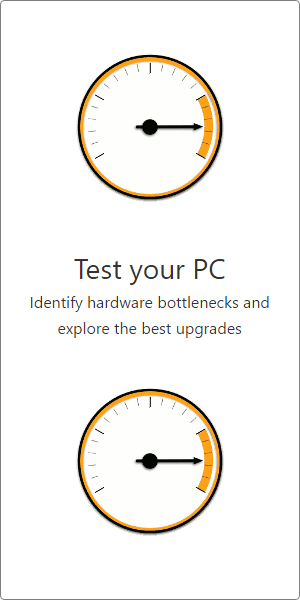Effective Speed
+9%
Poor: 59%
Great: 103%
SPEED RANK: 384th / 1080
Poor: 53%
Great: 95%
SPEED RANK: 500th / 1080
| Effective Speed
Effective SSD Speed |
86.6 % | Slightly faster effective speed. |
79.4 % |
Average Score
+2%
Peak Score
+0%
Value & Sentiment
+85%
Nice To Haves
+8%
Specifications
| Capacity
Capacity |
250GB | 275GB |
Conclusion
Average Bench 86.6%
Average Bench 79.4%
User Builds
42,930
67,541
Systems with these SSDs
Top Builds that include these SSDs

 SSD
SSD
